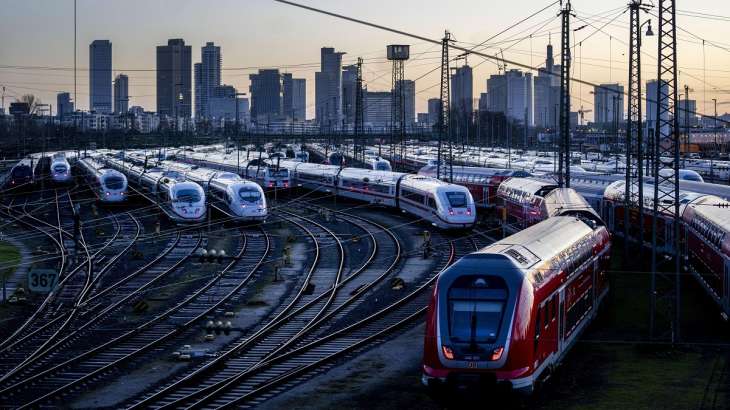
Germany, the world’s fourth-largest economy, is entering recession after the euro plunged and the economy unexpectedly shrank in the first three months of 2023, marking a second quarter of contraction that is a definition of recession.
Data released on Thursday by the Federal Statistical Office showed Germany’s gross domestic product, or GDP, declined by 0.3 percent in the January to March period. This follows a 0.5 per cent contraction in Europe’s biggest economy during the last quarter of 2022.
A common definition of contraction is two consecutive quarters of recession, although economists at the Euro Area Business Cycle Dating Committee use a wider set of data, including employment data. Germany is one of the 20 countries that use the Euro currency.
Employment in the country rose in the first quarter and inflation eased, but higher interest rates will keep pressure on spending and investment, said Franziska Palmas, senior Europe economist at Capital Economics.
“Germany has experienced a technical recession and has performed the worst among major eurozone economies over the past two quarters,” Palmas said.
The figures are a blow to the German government, which last month boldly doubled its growth forecast for this year amid fears of a winter energy crunch.
It said the economy would grow 0.4 percent – up from an estimated 0.2 percent expansion in late January – a forecast that may now need to be revised.
Economists said higher inflation hit consumer spending, with prices in April 7.2 percent higher than a year earlier. GDP refers to the total value of goods and services produced in a country. Some experts question whether this figure alone is a useful indicator of economic prosperity, as it does not distinguish between types of spending.
The eurozone economy ended the first quarter growing a modest 0.1 percent, according to early estimates, with inflation weighing on people’s willingness to spend as their wages failed to keep pace.
The US also reported disappointing growth projections that kept alive fears of a recession in the world’s largest economy.
The International Monetary Fund predicted this week that the United Kingdom would avoid falling into recession this year, after earlier expecting that it was one of the worst performers in the Group of Seven major industrialized nations.
IMF Managing Director Kristalina Georgieva said on Tuesday that “we are likely to see Britain do better than Germany, for example.”
(with inputs from PTI),
Read this also | ‘You are our last hope’: Imran Khan appeals to Supreme Court judges to save democracy in Pakistan
Read this also | Indian-origin teenager collided with a truck in the White House, said – wanted to kill Biden